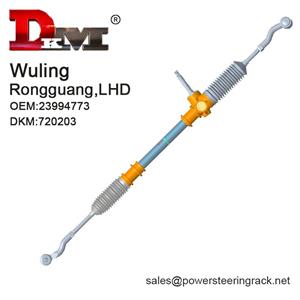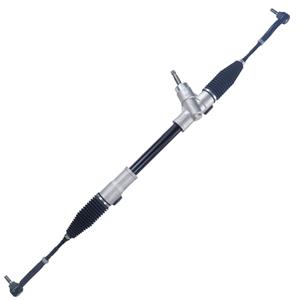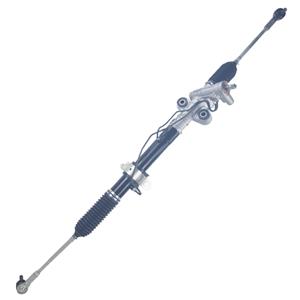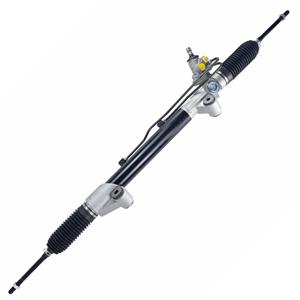Is it common for manual rack and pinion gear to fail?
Rack and pinion gear are common components in mechanical transmission systems, especially in automotive power steering systems. Manual rack and pinion gear are mainly used to convert the rotational motion of the driver turning the steering wheel into the linear motion required for tire steering. They not only directly affect the driving experience, but also have an important impact on the handling, safety and performance of the car.
As vehicles age, rack and pinion gear failures cannot be ignored. Although these problems are more common, they are not completely unavoidable.
This article will explore in detail the commonness of manual rack and pinion gear failures, the types of failures, the influencing factors, and how to effectively prevent these failures.
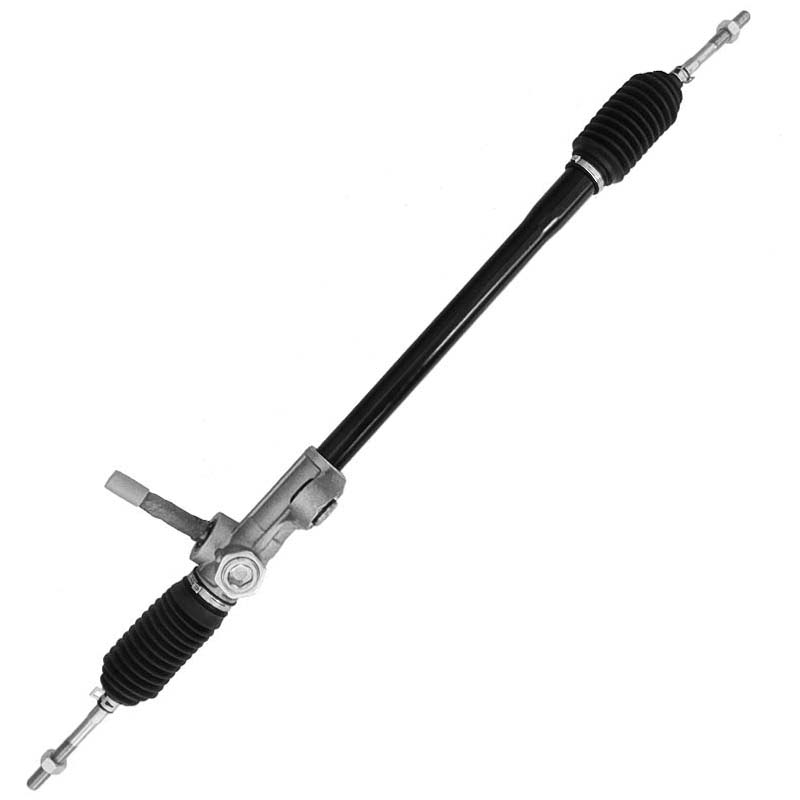
How does a manual rack and pinion gear work?
In manual steering systems, the working principle of a manual rack and pinion gear is very simple but crucial. The rack is a long strip of gear whose teeth mesh with the pinion gear to convert rotational motion into linear motion by turning the steering wheel, so that the car can turn. The connection of the manual rack and pinion gear enables the entire system to achieve effective power transmission.
1. The role of the rack
A manual rack is usually made of high-strength alloy steel. It has many evenly arranged teeth that mesh with the pinion gear. When the steering wheel rotates, the rack moves linearly along a track, thereby driving the wheels to rotate. This conversion of linear motion allows the driver to control the steering of the wheels through the steering wheel.
2. The role of the pinion
The pinion gear is generally connected to the steering wheel, and its main function is to drive the rack to move linearly through rotation. The pinion gear meshes with the teeth of the rack to form an efficient transmission mechanism. This transmission method is the most common design in manual steering systems, which can smoothly and accurately control the steering of the car.
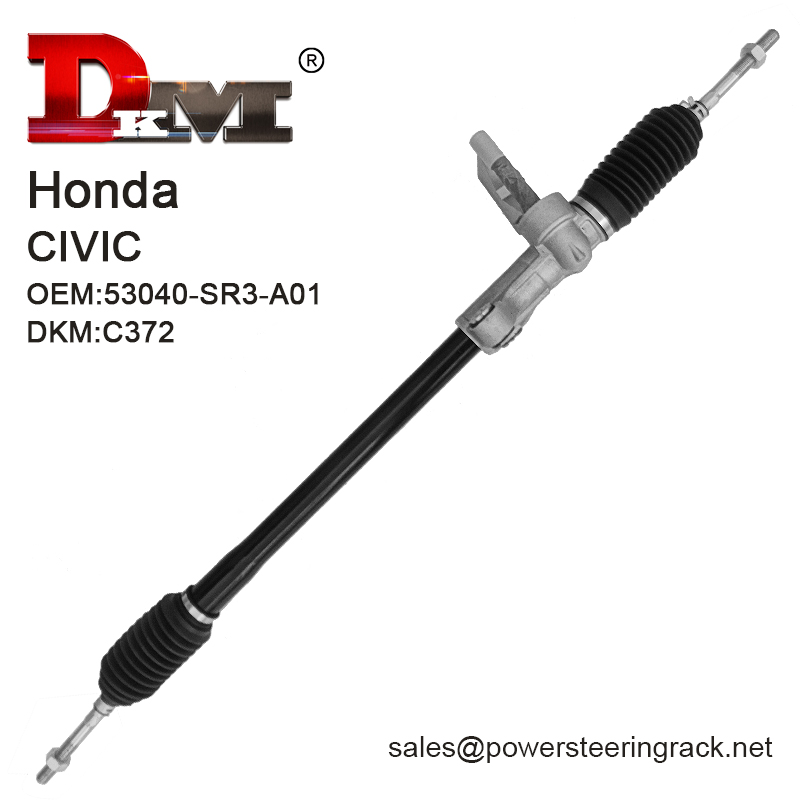
Is it common for manual rack and pinion gear to fail?
During the long-term use of a car or machine, manual rack and pinion gear may indeed fail due to frequent movement and high load use. Although these failures are not common, the probability of their occurrence increases with the age of the car. Especially in the case of poor driving conditions, inadequate maintenance or poor quality, the problem of rack and pinion gear failure is particularly prominent.
1. Common causes of failures
Common failures of manual rack and pinion gears usually stem from the following reasons:
· Wear: Since rack and pinion gears are frequently moving parts, they will wear out during long-term use. As wear accumulates, the gear meshing is no longer precise, resulting in inflexible steering, abnormal noise, and even steering failure.
· Insufficient lubrication: Lubricating oil plays a vital role in the normal operation of rack and pinion gears. If the lubricating oil in the system is insufficient or aged, it will increase wear and accelerate the damage of rack and pinion gears.
· Improper assembly: During the production and installation of manual rack and pinion gears, if there are errors or poor assembly, it may cause improper meshing and early failure.
· External shock or excessive load: Under extreme driving conditions, such as frequent sharp turns, excessive steering, etc., the rack and pinion gear is subjected to excessive load, which may also cause failures.
· Corrosion and rust: In humid or salty environments, rack and pinion gears may suffer from corrosion or rust problems, which will affect their normal operation.
2. Common types of failures
Manual rack and pinion gears have a variety of failure types, the most common of which are as follows:
· Rack wear or breakage: After long-term use, the rack may show obvious wear on its surface, resulting in poor meshing between the rack and the pinion, inflexible steering, and even possible breakage.
· Pinion damage: As the core component of power transmission, the pinion is prone to damage if it is subjected to excessive load or long-term friction. The damaged pinion cannot effectively drive the rack, causing the entire steering system to fail.
· Noise and abnormal sound: When there is a problem with the manual rack and pinion gear, one of the most common phenomena is that the steering system makes abnormal noise, usually a "squeak" or "click" sound, which indicates that there is a problem with the meshing between the rack and pinion gear.
· Oil leakage problem: If the seal of the manual rack and pinion gear is damaged or improperly installed, it may cause hydraulic oil or lubricating oil to leak, which will affect the normal operation of the rack and pinion gear.
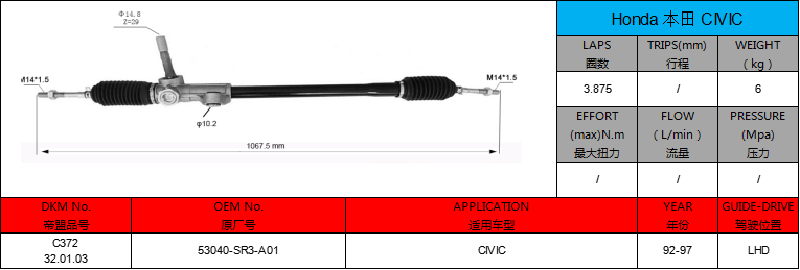
Impact of manual rack and pinion gear failure
When a manual rack and pinion gear fails, the impact is not limited to the vehicle's handling performance, but may also involve safety, maintenance costs and other aspects.
1. Decreased handling performance
When a rack and pinion gear fails, the first thing you feel is a decrease in handling performance. The steering wheel becomes heavy or inflexible, and may even cause the steering wheel to "swerve", that is, the steering wheel cannot return to the center after turning. This failure will directly affect the steering accuracy of the vehicle, and then affect the vehicle's driving stability and driving safety.
2. Increased safety hazards
Steering system failures may cause serious safety problems. When a rack or pinion fails, the driver may not be able to accurately control the vehicle, especially in an emergency, and the vehicle may not be able to drive on the intended trajectory, increasing the risk of traffic accidents. If a serious steering system failure occurs, it may cause the vehicle to completely lose steering control, resulting in an irreversible accident.
3. Increased maintenance costs
The failure of a manual rack and pinion gear usually means that the entire system needs to be replaced or repaired, which will result in higher maintenance costs. Especially for some high-end models or imported cars, the maintenance costs may be more expensive. In addition, if the fault is not discovered and repaired in time, it may cause damage to more parts, increasing the complexity and cost of repair.
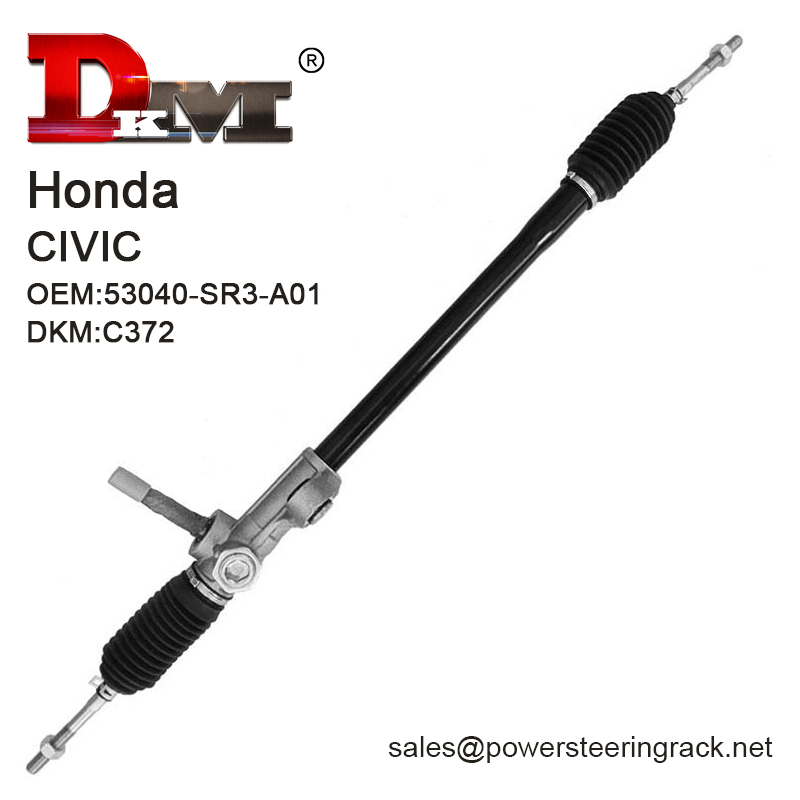
How to avoid manual rack and pinion gear failure?
Although manual rack and pinion gear failure is not an extremely common phenomenon, regular inspection and maintenance can effectively extend its service life and reduce the occurrence of failures.
1. Check the steering system regularly
The owner should regularly check the steering system, especially the wear of the rack and pinion gear. If irregular wear on the rack surface or cracks and defects on the pinion are found, the corresponding parts should be replaced in time.
2. Keep the lubricant sufficient and clean
Good lubrication is the key to ensure the normal operation of the rack and pinion gear. The owner should regularly check the lubricant in the steering system and ensure that the quality of the oil is good. If the lubricant is contaminated or aged, it should be replaced in time to reduce wear and avoid overheating.
3. Avoid oversteering and violent driving
The owner should avoid frequent sharp turns or excessive steering, which will not only help reduce the burden on the rack and pinion gear, but also avoid premature wear of the system. At the same time, avoiding long periods of high load can extend the service life of the steering system.
4. Repair hydraulic oil leaks in time
If a leak is found in the hydraulic system, it should be repaired in time. Hydraulic oil leakage will not only affect the lubrication effect of the rack and pinion gear, but may also cause overheating and damage to the system.
Steering Gear Solutions for International Markets
Guangdong Diamond Auto Parts Co., Ltd. (DKM) offers high-quality power steering gears to automotive manufacturers and dealers around the world. Our factory in Foshan, China, is equipped with state-of-the-art equipment to produce steering systems for global vehicle brands, including Toyota, Honda, and Mitsubishi. With more than 20 years of experience, DKM is known for offering affordable prices, exceptional quality, and efficient delivery services. Contact DKM today for quotes, bulk orders, and special offers.

